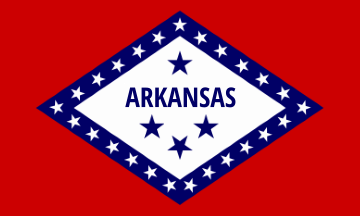Flagged

Huckabee, in South Carolina, says the question of what goes on a state's flag should be up to the citizens of that state.
"You don't like people from outside the state coming in and telling you what to do with your flag," Huckabee said at a Myrtle Beach campaign event. "In fact, if somebody came to Arkansas and told us what to do with our flag, we'd tell them what to do with the pole, that's what we'd do."
I agree with that philosophy, while abstaining from the bluster. A while back, when Gov. Roy Barnes redrew Georgia's state flag and stripped off the part of it that Georgia soldiers had carried in the Civil War, in response to outside pressure, he got voted out of office by descendants of those soldiers.
They hated the way Barnes ramrodded the new flag through the state legislature in barely a week, with little debate. The Peach State was hosting or vying for five NCAA basketball events at the time, and the NCAA, under pressure from the NAACP, was threatening a boycott if the flag didn't change. Here's what I wrote about that:
You don't have to be a race-baiter or a flag-waver to object to politicians making decisions that way. Arrogant I-know-better-than-you attitudes deserve to be voted out of office, whatever their political persuasion.
The Confederacy was about a great deal more than just the right to own other human beings as slaves. If the Rebel battle saltire represented nothing more than racism and hate, then I'd agree with the NAACP. But it's bogus history to say that it does. But having written and researched extensively on the battlefield business of that war, I've learned to appreciate the military effort and personal sacrifice put forth by the hundreds of thousands of Southern troops, more than three-quarters of whom had no direct connection to slavery whatsoever. Most of the historically minded people I talk to, North and South, whatever their feelings about CSA images used as political symbols, agree it is proper to place the South's flag on graves of men who fought under it. That's courtesy and honor to a soldier.
But this cannot be done in federal cemeteries, such as Point Lookout National Cemetery, in Maryland, where more than 3,000 Southern POWs lie buried -- victims of the North's version of Andersonville. The Parks Department's policy forbids their battle flag from flying there. The NAACP vows to push this further, and its leaders have stated their intention, "to commit their legal resources to the removal of the Confederate Flag from all public properties."
The fixation on modern American racism as some perverse peculiarity of Southern white culture allows Northern people to overlook a lot of deep problems, with discomforting solutions, closer to home. There is a racist subtext, if I may say so, in the statements I often hear up here, like, "We should have just let the South go."
Real integration doesn't mean putting the beggar on foot up on horseback and the beggar on horseback down on the ground to be whipped. The South now leads the North in things like real integration and power-sharing among ethnic groups in mixed communities. Compare Atlanta to Philadelphia or Baltimore. The balance now in place in so many places in the post-1970 South is the true legacy of the Civil Rights movement, but continued hounding of complex, harmless, beloved symbols like the old flag actually threatens to undo this legacy, not extend it.
However, I find Huckabee's choice of language interesting. I actually wonder why someone hasn't gone after the Arkansas flag, since it celebrates that state's participation in the slaveholder's rebellion.
The three blue stars had four meanings: Arkansas belonged to three countries (France, Spain, and the United States) before attaining statehood; 1803 was the year of the Louisiana Purchase when the land that is now Arkansas was acquired by the United States; Arkansas was the third state created from the purchase by the United States; and the two stars below and parallel to the name Arkansas signify that Arkansas and Michigan are twin states. Both states were admitted to the Union about the same time - Arkansas on June 15, 1836, and Michigan on January 26, 1837.
... On February 26, 1913, the legislature made Miss Hocker's design the state's official flag. The U.S.S. Arkansas received her flag from the Pine Bluff Chapter of the D.A.R.
Then there was trouble ... there was no indication on the flag that Arkansas had been a member of the Confederate States of America from 1861 to 1865. To correct that, the legislature in 1923 added a fourth blue star .... The three stars below "Arkansas" retained the meaning Miss Hocker had set and the lone star above the word is to commemorate Arkansas' membership in the Confederacy.
Anyone? Anyone? Sharpton?
Labels: Confederate flag, NAACP

